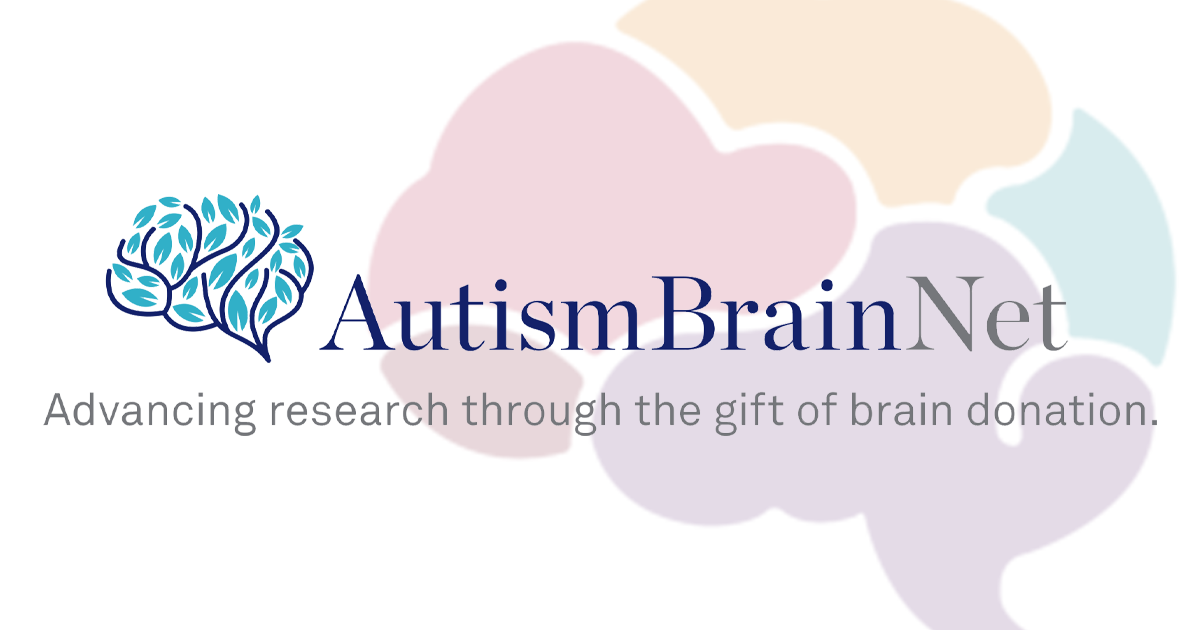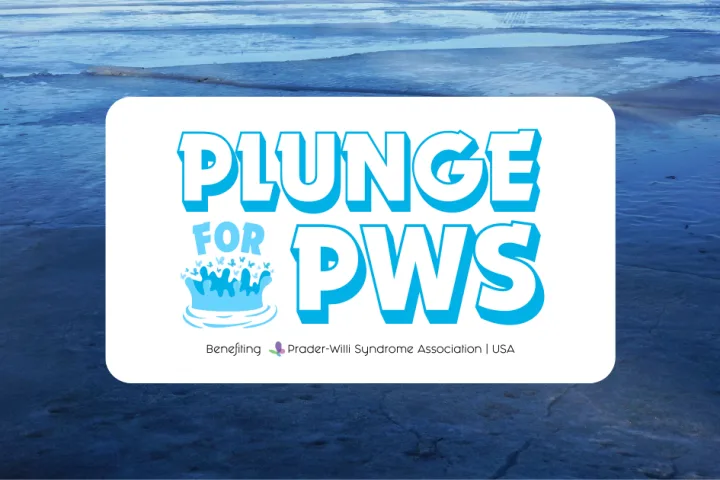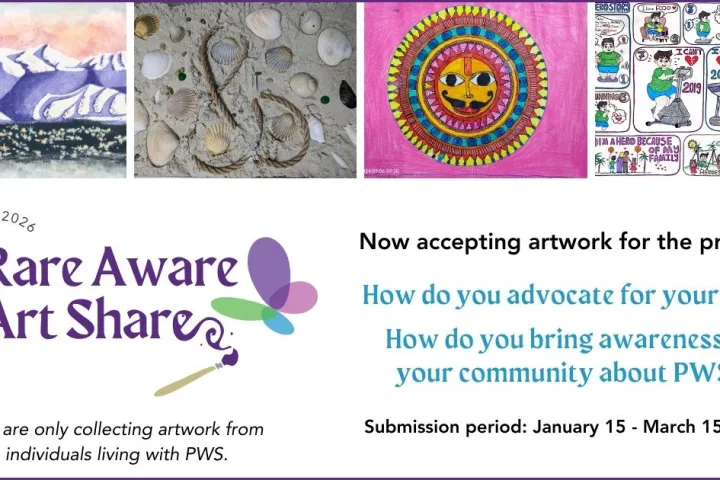Autism BrainNet is a program of the Simons Foundation Autism Research Initiative (SFARI) that promotes innovative, high-quality research on postmortem brain tissue to improve the understanding of the biological causes of autism spectrum disorder (ASD) and related neurodevelopmental conditions.
We work with Autism BrainNet to promote a greater knowledge of neurodevelopmental conditions and brain tissue research, while ensuring the smoothest donation process for families during a very difficult time.
Why is brain tissue research important?
Studying postmortem brain tissue can lead to a better understanding of the cellular and molecular changes associated with ASD and related neurodevelopmental conditions in the human brain, as well as identify targets for new and effective treatments.
How does the donation process work?
Autism BrainNet makes the donation process as simple as possible for every family. Donor families are treated with respect and compassion and provided with ongoing support. These are the steps involved in the process of brain donation to Autism BrainNet:
1. Call Autism BrainNet at 877-333-0999 for immediate assistance (optimally within 24 hours of the death of a loved one). If death is near, you can call Autism BrainNet to make plans for donation. Autism BrainNet’s staff is available 24/7 and will walk your family through the donation process.
2. Autism BrainNet coordinates brain recovery and transportation to their nearest site.
3. An Autism BrainNet clinician follows up with the donor family to schedule a video meeting or home visit to learn more about the donor.
There is no cost to families, and brain donation does not interfere with autopsy or funeral plans. Autism BrainNet’s staff can be contacted anytime to answer questions or concerns about the
brain donation process.
Pre-registration is not required to become a donor with Autism BrainNet. However, you can download and print the Intent to Donate Postmortem Brain Tissue for Research form and an Autism BrainNet Brain Donor Card to include in your preplanning documents.
How can I learn more about brain tissue research and Autism BrainNet?
Families are welcome to subscribe to the Autism BrainNet’s newsletter to receive program and scientific updates. To sign up, visit: autismbrainnet.org/newsletter.
For more information about Autism BrainNet and the donation process:
Call 1-877-333-0999 | Visit autismbrainnet.org | Email info@autismbrainnet.org
Share this!





 Perry A. Zirkel has written more than 1,500 publications on various aspects of school law, with an emphasis on legal issues in special education. He writes a regular column for NAESP’s Principal magazine and NASP’s Communiqué newsletter, and he did so previously for Phi Delta Kappan and Teaching Exceptional Children.
Perry A. Zirkel has written more than 1,500 publications on various aspects of school law, with an emphasis on legal issues in special education. He writes a regular column for NAESP’s Principal magazine and NASP’s Communiqué newsletter, and he did so previously for Phi Delta Kappan and Teaching Exceptional Children. Jennifer Bolander has been serving as a Special Education Specialist for PWSA (USA) since October of 2015. She is a graduate of John Carroll University and lives in Ohio with her husband Brad and daughters Kate (17), and Sophia (13) who was born with PWS.
Jennifer Bolander has been serving as a Special Education Specialist for PWSA (USA) since October of 2015. She is a graduate of John Carroll University and lives in Ohio with her husband Brad and daughters Kate (17), and Sophia (13) who was born with PWS. Dr. Amy McTighe is the PWS Program Manager and Inpatient Teacher at the Center for Prader-Willi Syndrome at the Children’s Institute of Pittsburgh. She graduated from Duquesne University receiving her Bachelor’s and Master’s degree in Education with a focus on elementary education, special education, and language arts.
Dr. Amy McTighe is the PWS Program Manager and Inpatient Teacher at the Center for Prader-Willi Syndrome at the Children’s Institute of Pittsburgh. She graduated from Duquesne University receiving her Bachelor’s and Master’s degree in Education with a focus on elementary education, special education, and language arts. Evan has worked with the Prader-Willi Syndrome Association (USA) since 2007 primarily as a Crisis Intervention and Family Support Counselor. Evans works with parents and schools to foster strong collaborative relationships and appropriate educational environments for students with PWS.
Evan has worked with the Prader-Willi Syndrome Association (USA) since 2007 primarily as a Crisis Intervention and Family Support Counselor. Evans works with parents and schools to foster strong collaborative relationships and appropriate educational environments for students with PWS. Staci Zimmerman works for Prader-Willi Syndrome Association of Colorado as an Individualized Education Program (IEP) consultant. Staci collaborates with the PWS multi-disciplinary clinic at the Children’s Hospital in Denver supporting families and school districts around the United States with their child’s Individual Educational Plan.
Staci Zimmerman works for Prader-Willi Syndrome Association of Colorado as an Individualized Education Program (IEP) consultant. Staci collaborates with the PWS multi-disciplinary clinic at the Children’s Hospital in Denver supporting families and school districts around the United States with their child’s Individual Educational Plan. Founded in 2001, SDLC is a non-profit legal services organization dedicated to protecting and advancing the legal rights of people with disabilities throughout the South. It partners with the Southern Poverty Law Center, Protection and Advocacy (P&A) programs, Legal Services Corporations (LSC) and disability organizations on major, systemic disability rights issues involving the Individuals with Disabilities Education Act (IDEA), Americans with Disabilities Act (ADA), and the federal Medicaid Act. Recently in November 2014, Jim retired.
Founded in 2001, SDLC is a non-profit legal services organization dedicated to protecting and advancing the legal rights of people with disabilities throughout the South. It partners with the Southern Poverty Law Center, Protection and Advocacy (P&A) programs, Legal Services Corporations (LSC) and disability organizations on major, systemic disability rights issues involving the Individuals with Disabilities Education Act (IDEA), Americans with Disabilities Act (ADA), and the federal Medicaid Act. Recently in November 2014, Jim retired.